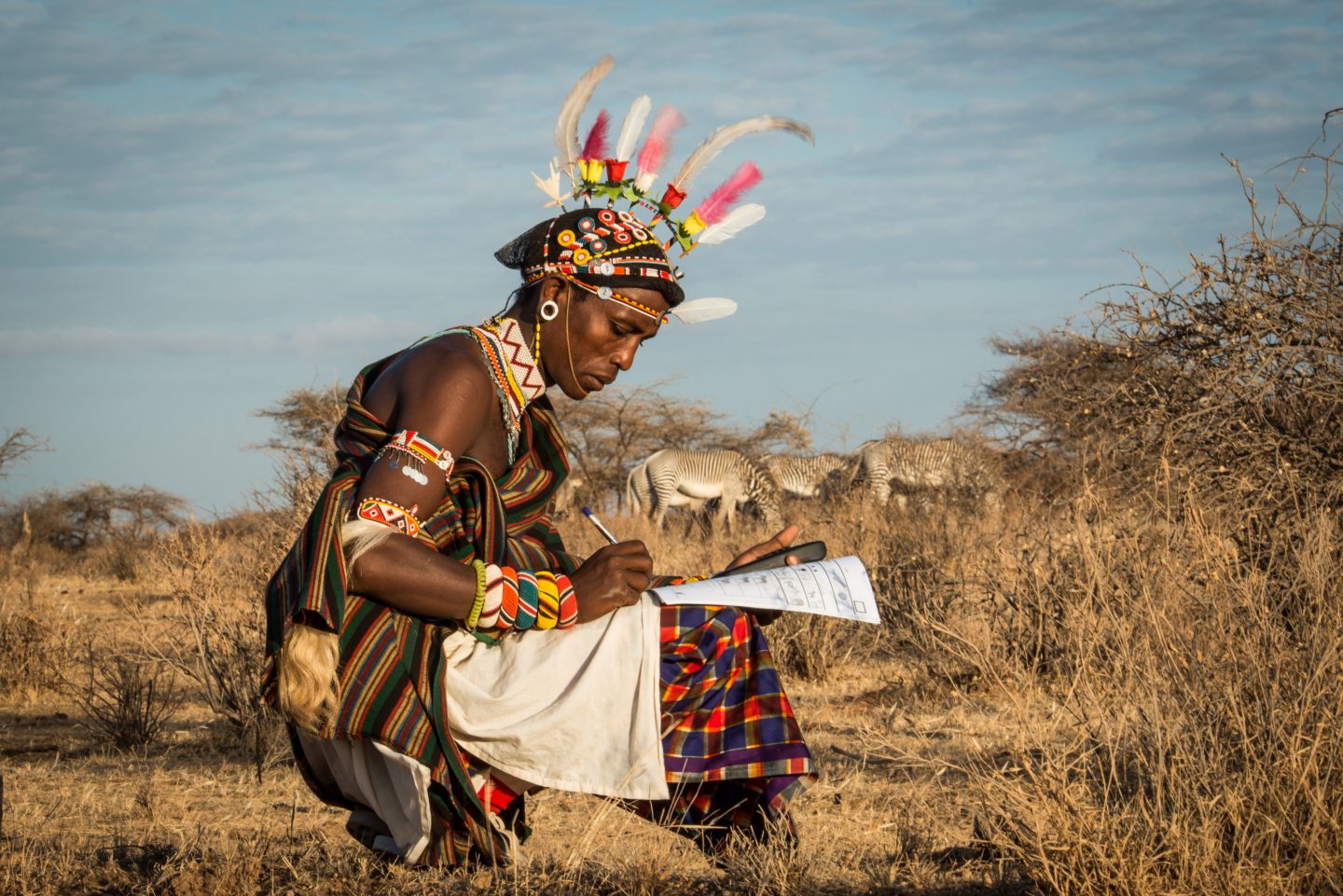
The success of conservation initiatives is intrinsically linked to the value they generate for communities. As tensions over land and resources continue to grow, this has become clearer than ever before. Tusk supports innovation at the local level to promote human-wildlife coexistence.
Recently published IUCN guidelines on human-wildlife conflict and coexistence follow five principles and are designed to cover conflict with all relevant species, from elephants to sharks and from bats and rodents, they are:
- Do no harm
- Understand the issues and context
- Work together
- Integrate science and policy
- Enable sustainable pathways
The IUCN SSC Human-Wildlife Conflict & Coexistence Specialist Group defines human-wildlife conflict as
‘Struggles that emerge when the presence or behaviour of wildlife poses actual or perceived, direct and recurring threats to human interests or needs, leading to disagreements between groups of people and negative impacts on people and/or wildlife’
It’s clear that much human-wildlife conflict is effectively people clashing with people about wildlife. It is therefore vital that, for mitigation to be successful, the situation from all sides must be heard and understood.
In many parts of Africa, our partners have been reporting how human-wildlife conflict has overtaken poaching as the greatest threat to some of the continent’s most important elephant populations.
Meanwhile having already suffered from habitat loss, coupled with a decrease in natural prey or other food sources, Africa’s big cat populations are increasingly turning to livestock for an easy meal. Retaliatory, or even pre-emptive killings have become one of their greatest threats.
Whether it’s with elephants, big cats, primates or rodents, human-wildlife conflict is set to grow with the growth of the human population and further clearance of land for settlements and agriculture.
Where wildlife threatens lives and livelihoods, Tusk supports a range of actions to ensure that people and wildlife can both thrive within the same landscape. Our project partners mitigate thousands of incidents of human-wildlife conflict each year and continue to build innovative solutions, working hand-in-hand with communities to ensure people and wildlife can co-exist within the same landscapes.
Here’s just a snapshot of some of the impactful work being done by Tusk’s conservation partners to tackle human-wildlife conflict on the ground in recent years.
Lion Alert System. CLAWS Conservancy, Botswana
CLAWS have designed a two-pronged approach to reducing conflict and promoting human-lion coexistence using both technology and tradition. With colleagues from the University of Siegen, they have developed a first of its kind automated, adaptable alert system when collared lions approach livestock areas and “geo-fences”: pre-programmed lines of co-ordinates that send alerts when lions approach villages. They have over 100 participants that receive messages to their specific preferences (text or voice message) and language (Setswana or English) including the name and distance of the specific lion. Through this system, villagers who heeded the warnings have reduced their conflict by 50%.
Meanwhile, to reverse the impacts of overgrazing, reduce lion conflict and build capacity, CLAWS are helping to resurrect the role of the traditional herder that has been lost in the last generation. In Eretsha Village, they have formed the first communal herd in Botswana including more than 80% of the village cattle (>1,000 head). A community committee creates rotational grazing plans and monitors the results and CLAWS have hired six certified herders to monitor livestock health and protect against predator attack.
Elephant Guardians. WCS Yankari, Nigeria
The Yankari Game Reserve is home to Nigeria’s largest surviving elephant population, estimated at 350 individuals. Poaching, human-elephant conflict and illegal cattle grazing also pose significant threats to the animals and the park. WCS has been co-managing Yankari, with the Bauchi State Government since 2009, by supporting park staff and local communities.
Meanwhile, with support from Tusk since 2016, an Elephant Guardian programme recruits local people to work within communities, promoting safe and effective techniques to deter elephants. This prevents the loss of income and subsistence crops, which in turn reduces hostility towards the animals. These activities have increased local support for the park and significantly lowered the level of poaching and illegal incursions.
Education, Monitoring and Jobs. Grevy’s Zebra Trust (GZT), Kenya
Listed as endangered, the Grevy’s zebras are the most threatened of the three zebra species, as a result of threats from habitat degradation, lack of water access during the dry season, and hunting by nomadic pastoralists. To help build positive attitudes towards the species, GZT set up a Grevy’s Zebra Scout Programme, employing 29 scouts from 7 different communities to monitor and collect data on the species. Scouts also visit schools and raise awareness among children about the importance of co-existing with all wildlife, not just with Grevy’s zebras. Tusk funding has supported 10 Grevy’s Zebra Warriors, helping with the costs of camel patrols to reach remote areas, which are grazed by zebras and inaccessible except by foot.
Your donations help support our partners’ work fostering a positive future for humans and wildlife. Please give what you can to help that work continue, thank you.



